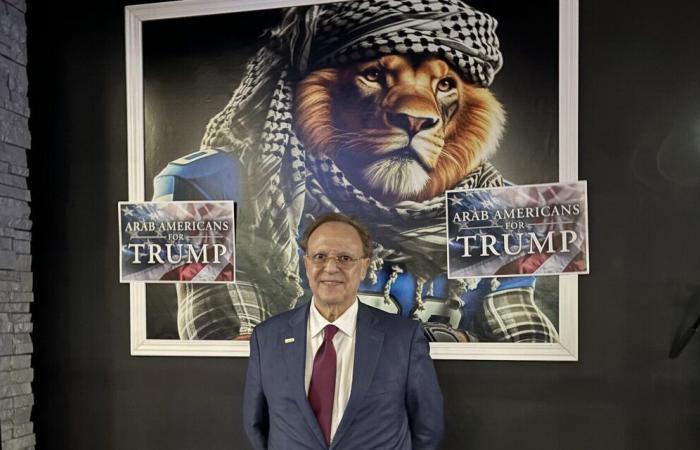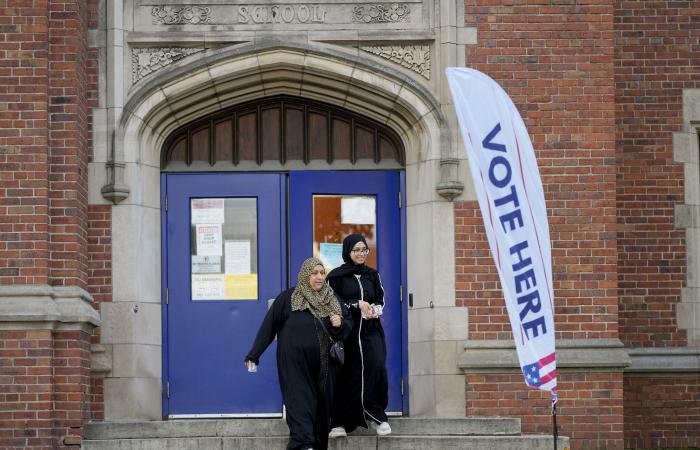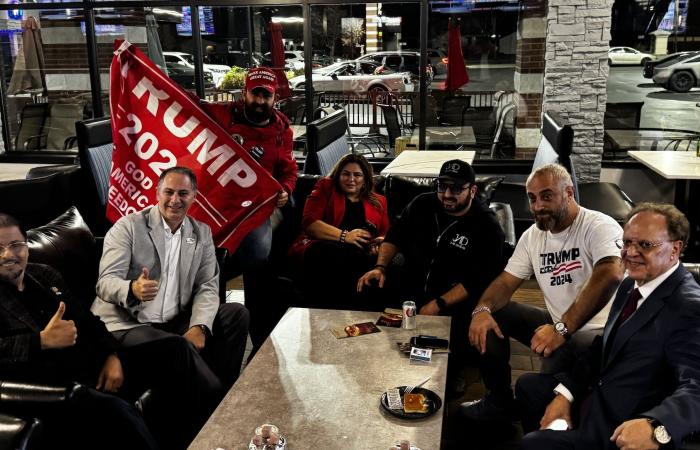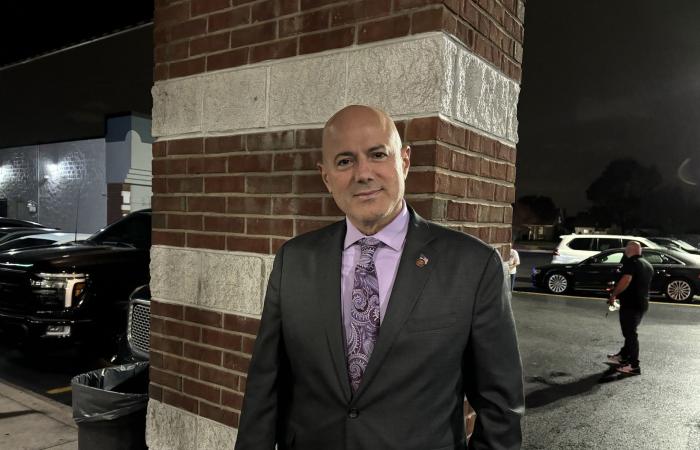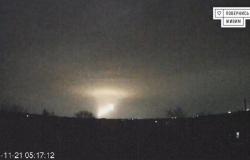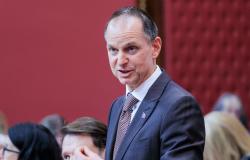DEARBORN, Mich. — Bishara Bahba is the president of the Arab Americans for Trump organization — which brings together members of the Arab and Muslim community who voted for Trump in the presidential elections, a prospect that seemed unthinkable just four years ago. On this election night, he found the other members of his organization in a living room filled with hookah smoke in the town of Dearborn, Michigan. Everyone gathered together to discover the results of the vote together.
This evening, several dozen Americans belonging to the local Arab community – it is considered the largest outside the borders of the Middle East – come and go in the room, while a clear picture of the results of the counting is not expected. will be outlined for several hours at least. The organizers said the evening would last until at least two in the morning.
Bahba confides to Times of Israel that the Republican presidential candidate is likely to impose an embargo on arms sales to Israel if the prime minister were to ignore his call for a quick end to the war in Gaza.
Receive our daily edition for free by email so you don’t miss the best news. Free registration!
“If he says to Netanyahu, ‘Stop this war before I take office,’ and Netanyahu fails to do so, nothing will stop Trump from stopping arms sales to Israel,” Bahbah said.
But how does Trump plan to keep his promise to end the multi-front war currently shaking the Middle East? To this question, Bahbah acknowledges that the Republican has been stingy with details on the subject but he emphasizes the significant influence he has on Netanyahu. He also notes that the former president appears to have recovered from the congratulations that were sent by the Israeli prime minister to Joe Biden when he won the race for the White House in 2020 – congratulations that led to outrage and the anger of the outgoing president.
Given Trump’s track record as president, however, there is little evidence to suggest he will abandon Israel.
To which Bahbah retorts that “the Trump of 2016 and the Trump of 2020 are very different personalities from the Trump of 2024.”
“He met with American communities of Arab and Muslim origin. He spoke at least fifteen times with Arab and Muslim leaders,” he explains.
Republican presidential candidate former President Donald Trump speaks during a visit to The Great Commoner coffee shop, while owner Albert Abbas, right, listens, in Dearborn, Michigan, November 1 2024. (Credit: Julia Demaree Nikhinson/AP)
Indeed, among the people who have joined Trump’s close circle over the past year is businessman Massad Boulos, born in Lebanon, whose son Michael married Tiffany Trump in 2022.
Boulos Sr. spent election night alongside Trump at Mar-a-Lago, the Republican candidate’s Florida home, Bahbah notes.
“Trump has publicly committed, on multiple occasions, to putting an end to wars and bringing peace to the Middle East and he is someone who keeps his promises,” he adds with conviction.
But the former president also urged Israel to “finish the job” in Gaza and used the term “Palestinian” as an insult in remarks made last year, alarming members of the Arab American community.
Bahbah claims that Trump, by saying the first sentence, simply meant that he wanted to end the war. It should also be noted that he no longer used the second after having done so for the first time during a presidential debate which was organized in June.
“It was at the beginning. Afterwards, he stopped,” Bahbah said, adding that “during the Republican National Convention, he did not mention the word ‘Palestinian’ or ‘Palestine’ at all, nor did he use the word ‘Muslim’ or ‘Islamic’. »
Voters leave a polling station at McDonald Elementary School, Tuesday, Nov. 5, 2024, in Dearborn, Mich. (AP Photo/Charlie Neibergall).
National chairman of Arab Americans for Trump says he’ll have to ‘compare four more years of Harris to four years of Trump,’ downplaying former president’s decision to move US embassy in Israel to Jerusalem .
“Moving a plaque hung in Tel Aviv to put it in Jerusalem is not equivalent to the murder of 43,000 people,” he exclaims, referring to the human toll put forward by the Gaza Ministry of Health, placed under the authority of Hamas, as part of the military campaign which pits the terrorist group against Israel in the Gaza Strip. An unverifiable record.
“I absolutely don’t believe Harris would be able to force the Israelis to do anything,” he adds.
Only two hours have passed since polls began closing in some states and the issue of counting in swing states has yet to be addressed – so little attention is being paid to news channels. information which broadcasts images of the elections, and those present chat with each other.
While there doesn’t seem to be many people there, the mere existence of a campaign led by Americans of Arab or Muslim origin in support of former President Donald Trump would have been virtually unimaginable four years ago, when the Republican president’s record, during his first term, included a series of measures in favor of Israel and a ban on immigration from Muslim-majority countries.
But the fury aroused by the Biden-Harris administration’s handling of the war in Gaza led to a massive abandonment of the Democratic Party within the Arab American community which had overwhelmingly supported the Democratic candidate in 202 , helping Biden win in this pivotal state. Some admit to appreciating Trump’s anti-war, even isolationist, rhetoric.
Bahba, who spent the day canvassing door to door in Dearborn, said he found voter turnout in the community to be average — although lower than in 2020, when imperative to prevent Trump from winning a second term had mobilized the Arab American electorate.
This time around, Bahbah predicted a dramatically different split, with voters in the half-million-strong Arab-American community splitting their votes between Trump and third-party candidate Jill Stein.
“Very few people will want to admit that they voted for Harris,” predicts the group’s president.
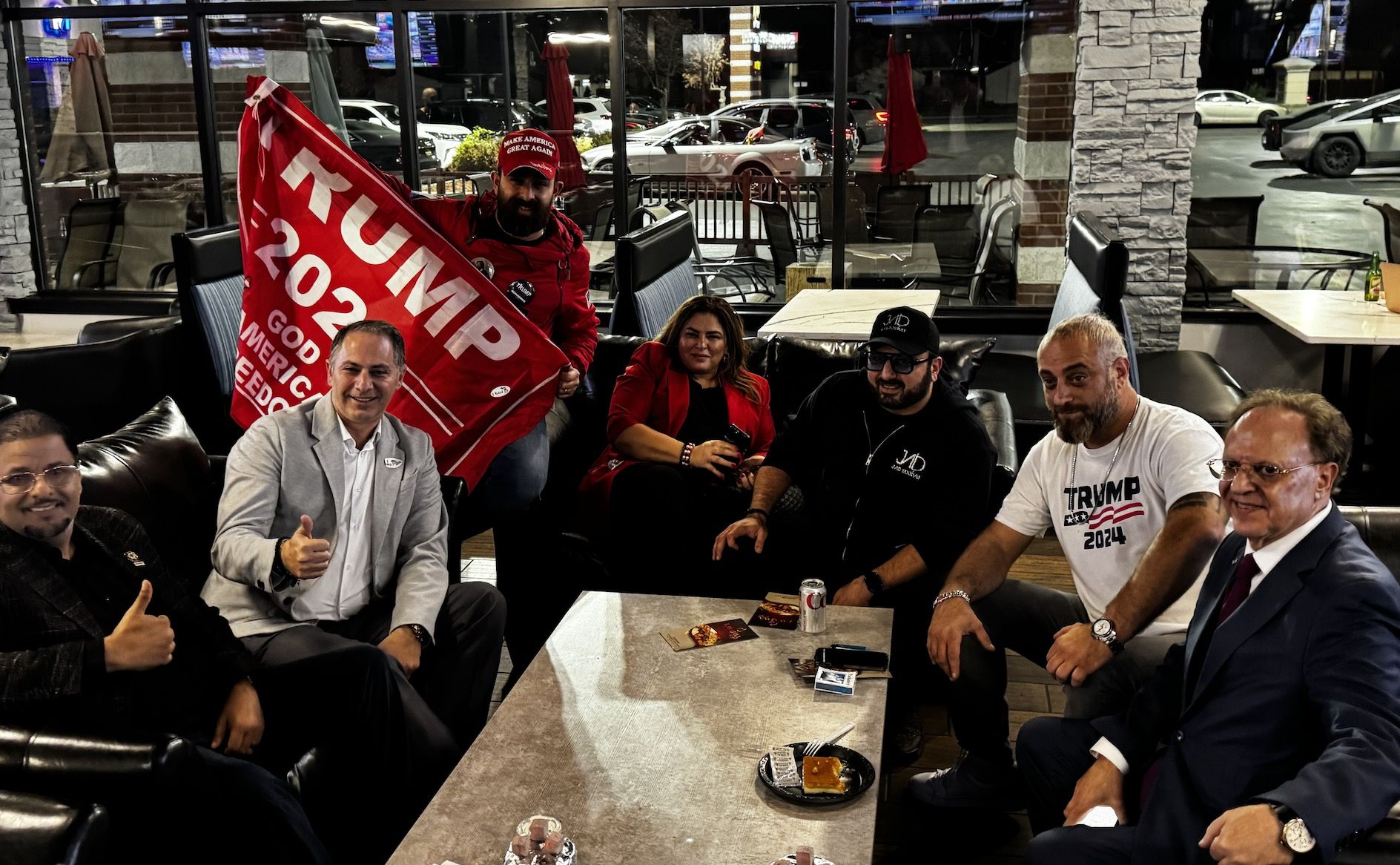
Arab Americans for Trump at an election watch party in Dearborn, Michigan, November 5, 2024. (Courtesy)
Bill Bazzi, the mayor of Dearborn Heights, came to election night himself. He explains that he decided to support Donald Trump’s candidacy after having, he says, noticed that the Middle East was a much calmer region when the former American president was in charge.
“Under his mandate, there was no war and he made sure to extract the United States from the theaters of conflicts that had been initiated by previous administrations,” he told the Times of Israel.
Dearborn Heights, the city where Bazzi is chief magistrate, has a population of around 70,000 people, on the outskirts of Detroit – with a majority of Americans of Arab origin, he says.
Bazzi is one of two mayors to support Trump ahead of Tuesday’s vote – an illustration of the significant frustration felt within this community over the country’s handling of the war between Israel and Hamas. from the Trump administration.
This Lebanese native says he also felt frustrated with the management of the war in Ukraine.
“I don’t like to see taxpayer money used to finance war machines, whether in Israel or Ukraine. We continue to finance them, but there is no diplomacy,” he laments as the discussions, already lively, begin to intensify in the room, around the tables, in view of the first results which seem give Trump the advantage.
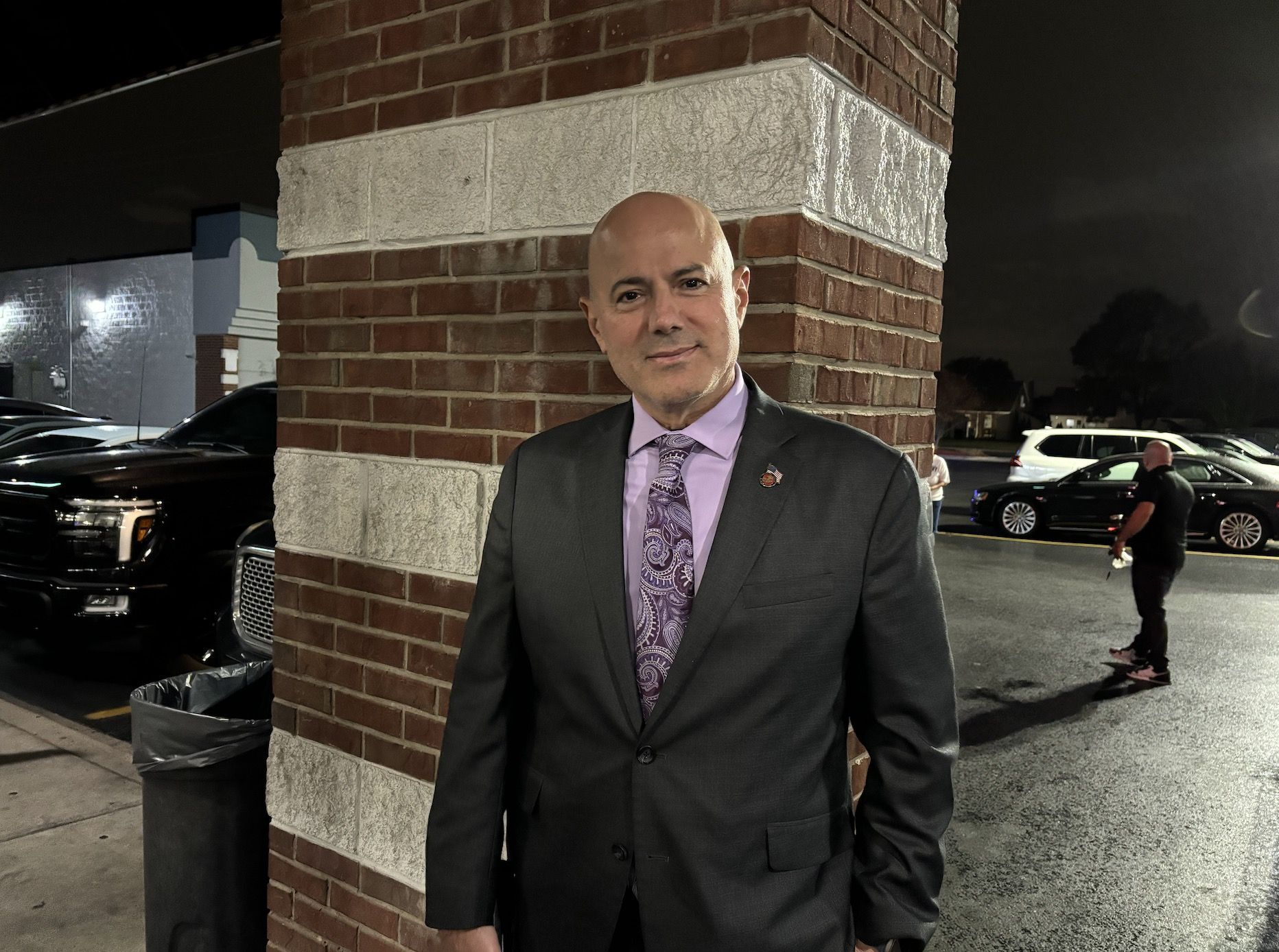
Dearborn Heights Mayor Bill Bazzi at an election night event in Dearborn, Michigan, November 5, 2024. (Jacob Magid/Times of Israel)
The United States has sought to negotiate a ceasefire in Gaza – but has criticized Hamas for refusing to engage in talks and accused it of rejecting offers submitted as part of the talks, all expressing frustration with Prime Minister Benjamin Netanyahu who has, over time, added new conditions and demands to reach a deal.
Bazzi believes that the United States has not used its influence over Israel to end the war and that if it does not, the conflict will eventually engulf the entire region.
He recognizes that the United States will always support the State of Israel “but we must still make this government assume its responsibilities regarding certain atrocities that have been committed against the Palestinians and the Lebanese. »
Asked about Trump’s rhetoric on the issue of immigrants and his ban on entry into the United States against citizens of Muslim-majority countries, Bazzi said the former’s policy president had targeted only seven of the more than 40 Muslim countries in the world and that its objective was to prevent former terrorists from the Islamic State from coming to American soil.
A soft-spoken army veteran, Bazzi recalls growing up in southern Lebanon during the civil war in the 1970s – a period that was also marked by Israeli bombing.
“I remember sleeping under a stairwell when our village was bombed. We could feel the earth shaking,” he says.
“I am a child of war myself and I don’t want other children to experience what I experienced,” adds Bazzi.

